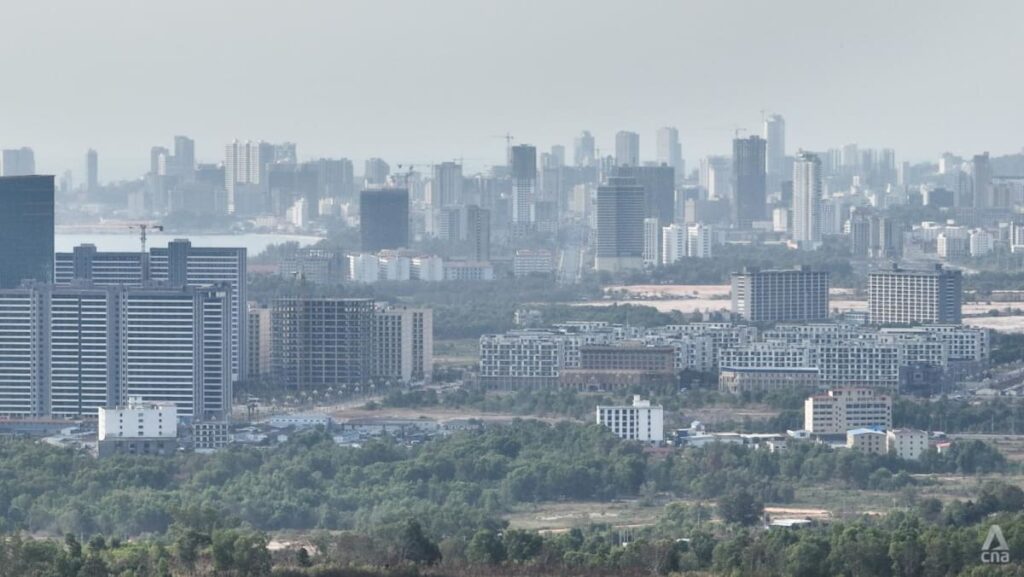“MAKE SIHANOUKVILLE GREAT AGAIN”
According to the Preah Sihanouk provincial administration, the area boasts a gross domestic product (GDP) per capita of US$4,000 – around double the Cambodian average – driven largely by a Chinese-run manufacturing hub.
The Sihanoukville Special Economic Zone is a symbol of the Cambodia-China relationship, says provincial vice-governor Long Dimanche, who was sanguine about the prospect of his city becoming little more than a casino boomtown.
“For me, whatever,” he told AFP. “Look at Macau, look at Las Vegas.”
He says Sihanoukville welcomed investment from anyone, on a first come, first served basis.
“Cambodia is a small country. We don’t have any choice.”
Cranes from Chinese construction firms swing around on the coastline frantically building a luxury seafront shopping resort, Peninsula Bay.
A project representative described the developer as a “Chinese-Cambodian” company and said it was designed to “make Sihanoukville great again”.
But Chinese investment projects around the world have had mixed outcomes, some proving to be white elephants and others burdening their hosts with crushing debts.
Ou Virak, president of Future Forum, a Cambodian think-tank, believes the port is becoming a “ghost city” full of empty buildings.
“Sihanoukville is a symptom of a broader real estate problem in China. They just export that to us,” he said.
More than a third of Cambodia’s US$11 billion in foreign debt is owed to China, according to the IMF.
A US$2 billion expressway connecting Sihanoukville to the capital Phnom Penh was built with Chinese funds and opened in 2022, but with minimum US$15 toll fares the dual carriageway is generally empty.
A Chinese-financed airport in Siem Reap near the Angkor Wat UNESCO-listed heritage site, inaugurated in 2023, is designed to handle 7 million tourists annually – over a million more than visited the whole country that year.
A 180km canal linking the Mekong River to the Gulf of Thailand is still awaiting funds from a Chinese-owned company almost a year after groundbreaking.
“Some of the projects have been too mega, too quickly, and there’s no organic demand for them,” said Ou Virak, calling some of them stranded assets. But “economically, you can’t deny China”.
Read the full article here

